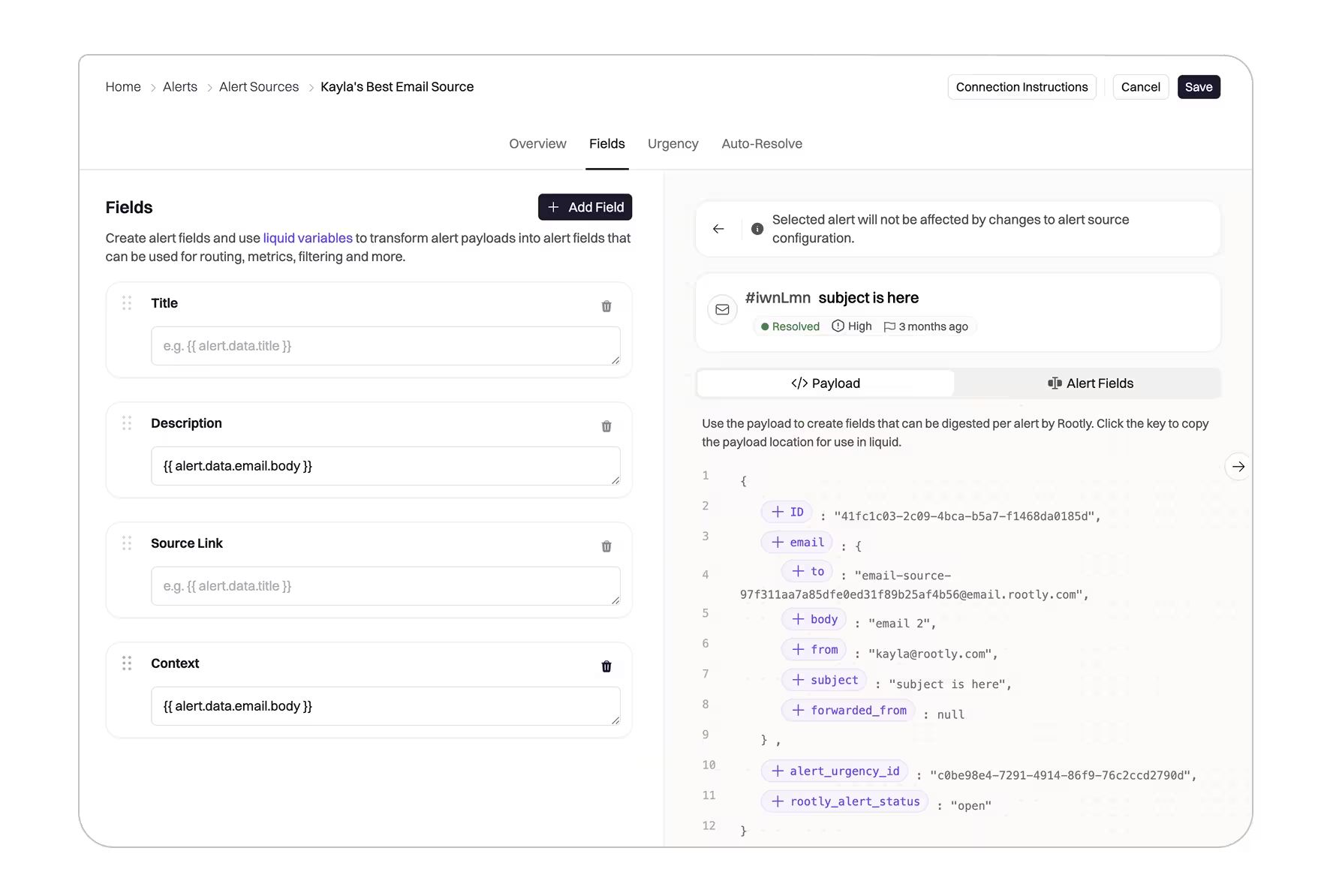Rootly’s new Alert Fields experience helps you extract, organize, and normalize data from incoming alert payloads—no matter which monitoring tools they come from. By standardizing unstructured data, the Alert Fields experience make it easier to route alerts accurately, enrich context for responders, and drive consistent reporting across your entire on-call stack.
Why it matters
Modern engineering teams rely on many monitoring tools, each with its own payload format. That inconsistency often leads to complex configurations, brittle routing logic, and missing context for responders. Alert Fields solve this by:
- Reducing configuration overhead: Create reusable, normalized data fields once and apply them across all your monitoring integrations.
- Adding clarity and consistency: Transform unstructured payloads into standardized fields that can be used everywhere in Rootly—alerts, routing, analytics, and workflows.
- Improving operational insight: Ensure every alert carries rich, structured metadata to improve triage and long-term analysis.
How it works
When alerts arrive from different sources (Datadog, Sentry, Chronosphere, etc.), each includes unique JSON payloads. With the new Alert Fields experience, you can:
- Extract key attributes like severity, region, environment, product area, or custom tags.
- Normalize them into structured fields accessible across Rootly.
- Reference those fields in routing rules, dashboards, and workflows for consistency.
Rootly automatically hydrates and stores these values for downstream processes—ensuring your alert data stays complete, consistent, and queryable long after the incident.

Getting started
- Go to Alerts → Fields in the Rootly dashboard.
- Define new alert fields and map them to attributes from your incoming alert payloads.
- Reference these fields in Alert Routes, workflows, or analytics to standardize alert data across your organization.
Check out the Alert Fields documentation to learn more.
This release gives SRE teams a scalable, consistent foundation for alert management—so you can route smarter, respond faster, and analyze incidents with richer, more reliable data.












